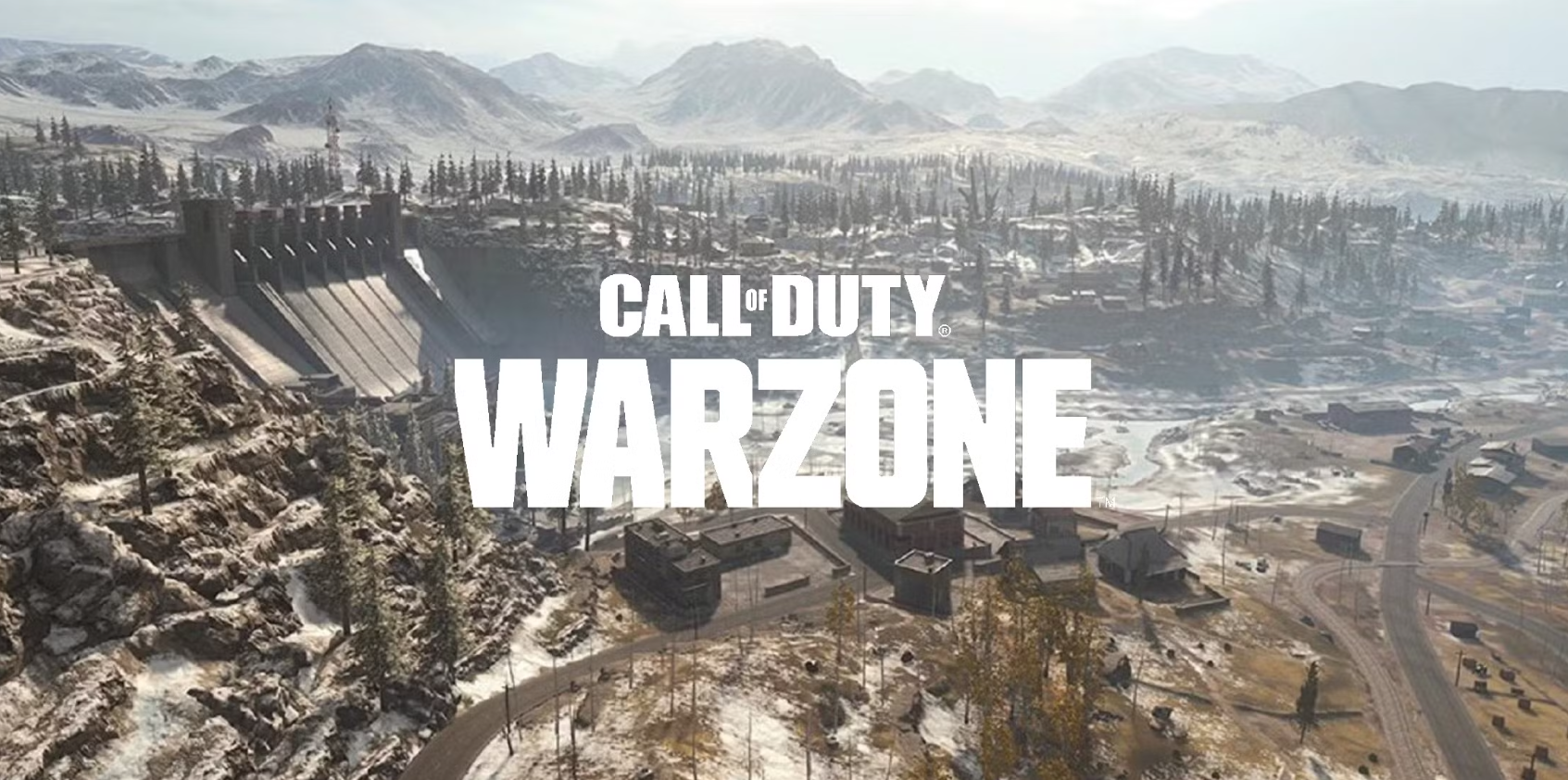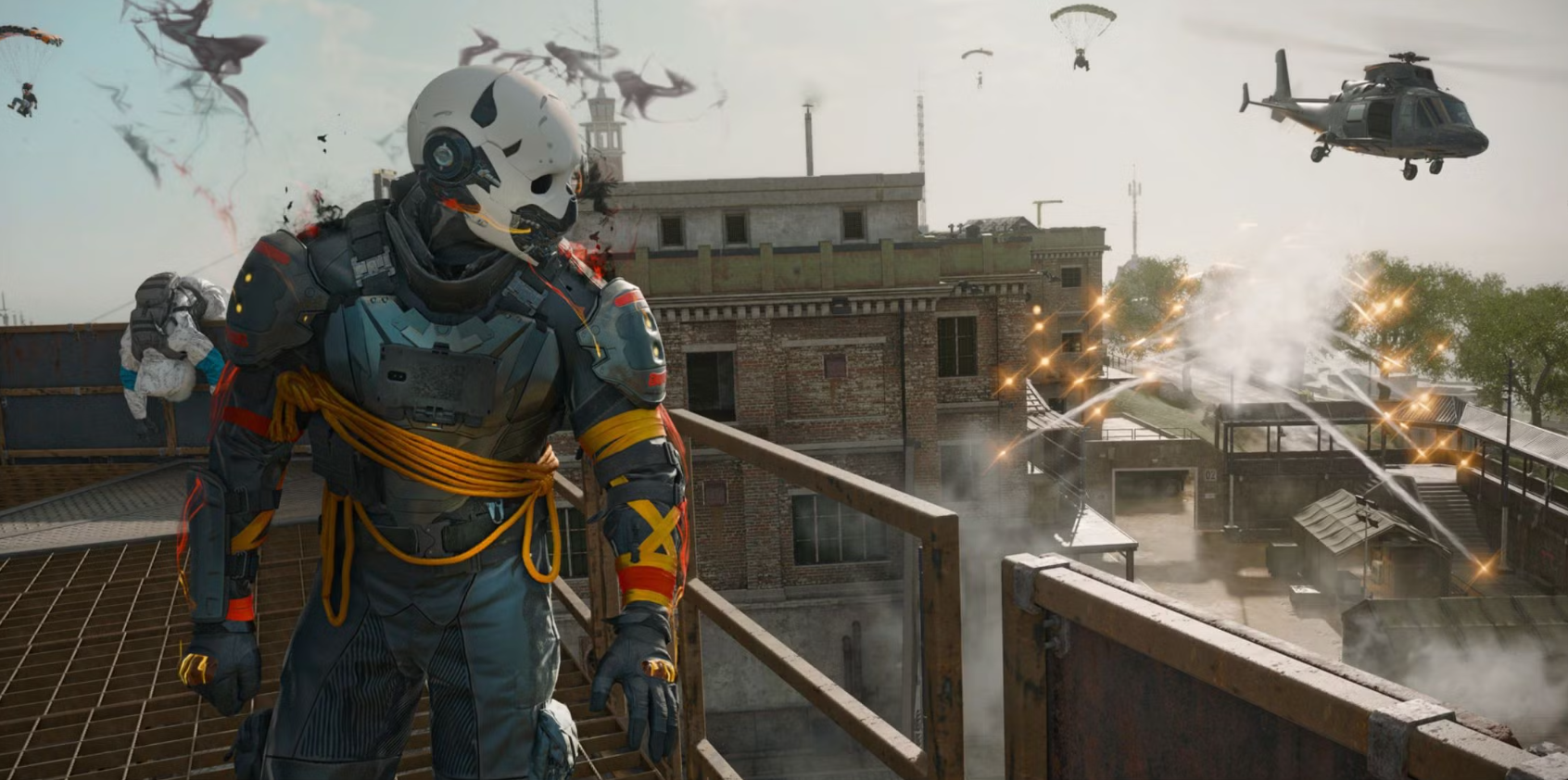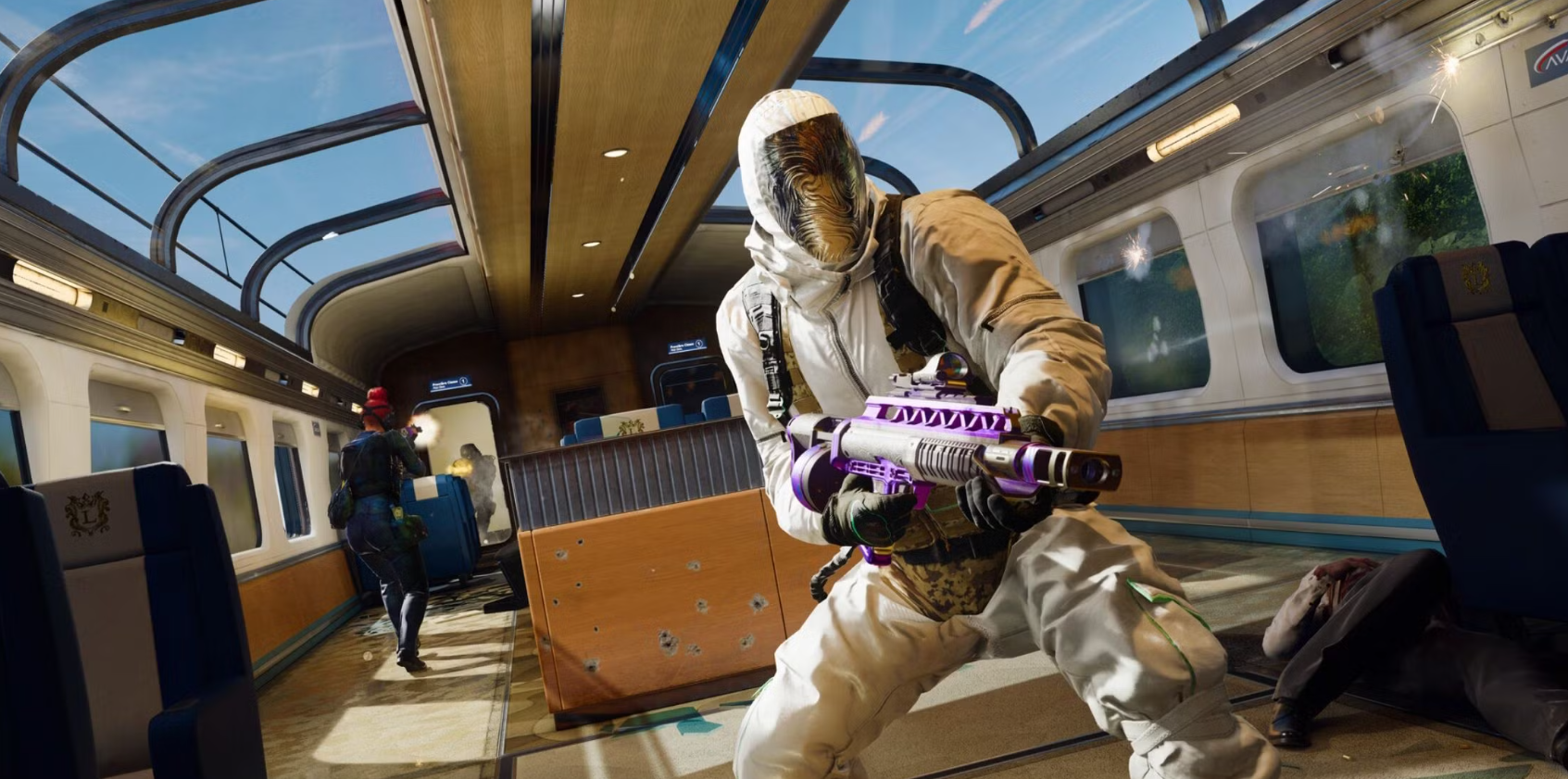Former Infinity Ward Developer Comments on Call of Duty: Modern Warfare 2 Mod Shutdown

A former Infinity Ward employee has spoken out against Activision’s decision to shut down a fan-made remaster of 2009’s Call of Duty: Modern Warfare 2, just a day before its scheduled release. The project, which had been in development for several years, had generated considerable excitement within the gaming community, as it aimed to revive the beloved multiplayer mode of Modern Warfare 2 with enhanced visuals, updated features, and quality-of-life improvements. The developer’s public criticism sheds light on the frustration felt by fans who had eagerly anticipated the opportunity to experience a modernized version of this classic title. Many expressed disappointment and outrage at Activision’s heavy-handed approach, arguing that the fan project posed no threat to the publisher’s own plans for the franchise.
Some speculate that Activision’s decision may have been motivated by a desire to maintain control over the Call of Duty IP and prevent any unauthorized modifications or adaptations. However, the former Infinity Ward dev contends that the project was a labor of love that would have enriched the gaming community without interfering with Activision’s commercial interests. The abrupt shutdown of the fan-made Modern Warfare 2 remaster has reignited debates around the balance between protecting intellectual property and fostering fan engagement and creativity within the gaming industry. As Activision faces backlash for its actions, the incident serves as a cautionary tale about the challenges of navigating the complex landscape of player-driven content and passionate fan communities.
Table of Contents
The Clash Between Activision and the H2M Mod: Debating the Balance Between Intellectual Property and Fan-Driven Content
The H2M Mod was set to launch on August 16th, but just a day before its release, the development team announced via social media that they had received a cease-and-desist order from Activision Publishing. Compelled to comply with the legal directive, the developers stated that they were shutting down all operations related to the project immediately and permanently. Some of the inspiration behind the mod stemmed from Activision’s choice to remaster only the single-player campaign of Modern Warfare 2, while leaving the game’s popular multiplayer mode untouched – a decision that had made the mod highly anticipated by the community. The H2M Mod aimed to fill this gap, offering players the opportunity to experience a modernized version of the beloved multiplayer experience that had defined the original 2009 release. The sudden cancelation sparked significant backlash, with players expressing frustration across platforms, leading to review bombing on Steam and refund requests for Modern Warfare Remastered. Many fans argued that the fan-made project posed no threat to Activision’s commercial interests, and that the publisher could have allowed it to coexist alongside their own official remaster efforts.
In response to Activision’s decision to cancel the Modern Warfare 2 multiplayer remaster, former Infinity Ward developer Robert Bowling criticized the publisher’s actions. He highlighted that many members of the original Infinity Ward team had backgrounds as modders and had benefited from the mod tools and server files provided with the original Call of Duty PC games. These tools were intended to empower community creations and extend the original vision of the games. Bowling argued that developers should focus on creating systems that support user-generated content communities, rather than limiting their potential. The abrupt shutdown of the fan-made Modern Warfare 2 remaster has reignited debates around the balance between protecting intellectual property and fostering fan engagement and creativity within the gaming industry. As Activision faces backlash for its actions, the incident serves as a cautionary tale about the challenges of navigating the complex landscape of player-driven content and passionate fan communities.
Beyond the immediate impact on the H2M Mod team and its supporters, the cancelation has raised broader concerns about the relationship between game publishers and their fan bases. Many in the gaming community have expressed concerns that Activision’s decision reflects a broader industry trend of stifling fan-led initiatives, even when they do not directly compete with commercial offerings. Some industry analysts have suggested that Activision’s actions may have been motivated by a desire to maintain tight control over the Call of Duty IP and prevent any unauthorized modifications or adaptations that could potentially undermine their own monetization strategies. The publisher has faced criticism in the past for its aggressive protection of its intellectual property, which has at times resulted in clashes with content creators and modders. However, proponents of the H2M Mod argue that their project was a labor of love that would have enriched the gaming community without interfering with Activision’s commercial interests. They contend that the publisher’s decision to shut down the remaster was an overreach that demonstrated a lack of understanding or appreciation for the value that fan-driven content can bring to a game’s longevity and player engagement.
The incident has also sparked discussions about the broader challenges facing the gaming industry as it navigates the evolving landscape of player-driven content. As games become more complex and communities more engaged, there is an increasing need for publishers to find ways to balance their commercial interests with the creative desires of their player base. Some experts have suggested that Activision and other publishers could explore more collaborative approaches, such as providing official mod tools and support for community projects, or even incorporating fan-made content into their official offerings. By fostering a more symbiotic relationship with their player communities, publishers may be able to tap into the creativity and passion of their most dedicated fans, ultimately strengthening the long-term appeal and sustainability of their game franchises. The cancelation of the H2M Mod has resonated with players across the Call of Duty community and beyond, highlighting the growing tensions between game publishers and their fans. As the industry continues to evolve, the resolution of this case and the lessons learned from it may have far-reaching implications for the future of player-driven content and the relationship between game creators and their audiences.
Faze Clan Weighs In on Activision’s Shutdown of the MW2 H2M Mod
The H2M Mod was set to launch on August 16th, but just a day before its release, the development team announced via social media that they had received a cease-and-desist order from Activision Publishing. Compelled to comply with the legal directive, the developers stated that they were shutting down all operations related to the project immediately and permanently. Some of the inspiration behind the mod stemmed from Activision’s choice to remaster only the single-player campaign of Modern Warfare 2, while leaving the game’s popular multiplayer mode untouched – a decision that had made the mod highly anticipated by the community. The H2M Mod aimed to fill this gap, offering players the opportunity to experience a modernized version of the beloved multiplayer experience that had defined the original 2009 release. The sudden cancelation sparked significant backlash, with players expressing frustration across platforms, leading to review bombing on Steam and refund requests for Modern Warfare Remastered. Many fans argued that the fan-made project posed no threat to Activision’s commercial interests, and that the publisher could have allowed it to coexist alongside their own official remaster efforts. In response to Activision’s decision to cancel the Modern Warfare 2 multiplayer remaster, former Infinity Ward developer Robert Bowling criticized the publisher’s actions. He highlighted that many members of the original Infinity Ward team had backgrounds as modders and had benefited from the mod tools and server files provided with the original Call of Duty PC games. These tools were intended to empower community creations and extend the original vision of the games. Bowling argued that developers should focus on creating systems that support user-generated content communities, rather than limiting their potential. The abrupt shutdown of the fan-made Modern Warfare 2 remaster has reignited debates around the balance between protecting intellectual property and fostering fan engagement and creativity within the gaming industry. As Activision faces backlash for its actions, the incident serves as a cautionary tale about the challenges of navigating the complex landscape of player-driven content and passionate fan communities.
Beyond the immediate impact on the H2M Mod team and its supporters, the cancelation has raised broader concerns about the relationship between game publishers and their fan bases. Many in the gaming community have expressed concerns that Activision’s decision reflects a broader industry trend of stifling fan-led initiatives, even when they do not directly compete with commercial offerings. Some industry analysts have suggested that Activision’s actions may have been motivated by a desire to maintain tight control over the Call of Duty IP and prevent any unauthorized modifications or adaptations that could potentially undermine their own monetization strategies. The publisher has faced criticism in the past for its aggressive protection of its intellectual property, which has at times resulted in clashes with content creators and modders. However, proponents of the H2M Mod argue that their project was a labor of love that would have enriched the gaming community without interfering with Activision’s commercial interests. They contend that the publisher’s decision to shut down the remaster was an overreach that demonstrated a lack of understanding or appreciation for the value that fan-driven content can bring to a game’s longevity and player engagement. The incident has also sparked discussions about the broader challenges facing the gaming industry as it navigates the evolving landscape of player-driven content. As games become more complex and communities more engaged, there is an increasing need for publishers to find ways to balance their commercial interests with the creative desires of their player base.
Some experts have suggested that Activision and other publishers could explore more collaborative approaches, such as providing official mod tools and support for community projects, or even incorporating fan-made content into their official offerings. By fostering a more symbiotic relationship with their player communities, publishers may be able to tap into the creativity and passion of their most dedicated fans, ultimately strengthening the long-term appeal and sustainability of their game franchises. The cancelation of the H2M Mod has resonated with players across the Call of Duty community and beyond, highlighting the growing tensions between game publishers and their fans. As the industry continues to evolve, the resolution of this case and the lessons learned from it may have far-reaching implications for the future of player-driven content and the relationship between game creators and their audiences. Popular esports organization FaZe Clan also weighed in on the situation, voicing its disappointment over Activision’s decision to shut down the MW2 H2M mod. While FaZe Clan was not directly involved in the remaster project, it acknowledged that many of its enthusiastic fans were eagerly anticipating the opportunity to create content, such as an ILLCAMS video series, around the mod. FaZe Clan emphasized that the remaster could have been a valuable asset for community building and onboarding new players to the Call of Duty franchise. The organization urged Activision to reconsider its decision, framing the mod as an opportunity for harmless fun and engagement within the dedicated Call of Duty player base – something FaZe Clan believes is crucial for the long-term health and growth of the franchise. The broader Call of Duty community has also rallied behind the cause, launching a petition on Change.org titled “Let H2M-Mod Live in Peace.” In less than 24 hours, the petition garnered nearly 6,500 signatures from players advocating for the release of the mod to the public. As of this writing, the petition has accumulated 7,875 signatures, with a goal of reaching 10,000. This growing support underscores the community’s strong desire to see the remaster project come to fruition, despite Activision’s legal intervention. The involvement of prominent entities like FaZe Clan, as well as the rapid growth of the community-driven petition, highlights the significance of the H2M mod within the Call of Duty landscape. Many players and influencers believe that Activision’s decision to shut down the project was a missed opportunity to engage and empower the franchise’s passionate fan base – a misstep that could have long-term implications for the publisher’s relationship with its core community.
In the aftermath of the H2M Mod’s cancelation, the gaming community has continued to grapple with the broader implications of this incident. Some have argued that Activision’s actions reflect a troubling trend in the industry, where publishers prioritize the protection of their intellectual property over fostering genuine fan engagement and creativity. Critics contend that this approach fails to recognize the value that fan-driven content can bring to a game’s longevity and overall player experience. They point to examples of successful games like Minecraft, where the developer has actively embraced and supported the thriving modding community, leading to a vibrant ecosystem of user-generated content that has sustained the game’s popularity for years. In contrast, Activision’s decision to shut down the H2M Mod has been widely perceived as a heavy-handed and myopic move that undermines the goodwill and passion of its player base. Some have suggested that the publisher’s actions could have unintended consequences, potentially alienating sections of the Call of Duty community and discouraging future fan-led initiatives that could have enriched the franchise.
As the gaming industry continues to evolve, the H2M Mod incident has sparked renewed discussions about the need for a more balanced and collaborative approach between publishers and their player communities. Experts argue that by embracing and empowering fan creativity, game companies can foster deeper player investment, build stronger brand loyalty, and ultimately drive long-term commercial success. The resolution of this case, and the lessons learned from it, may have far-reaching implications for the future of player-driven content and the relationship between game creators and their audiences. As the gaming landscape becomes increasingly complex and competitive, the ability of publishers to strike the right balance between protecting their intellectual property and nurturing their fan communities may be a critical factor in determining the long-term sustainability and success of their game franchises.





best website for free steam accounts